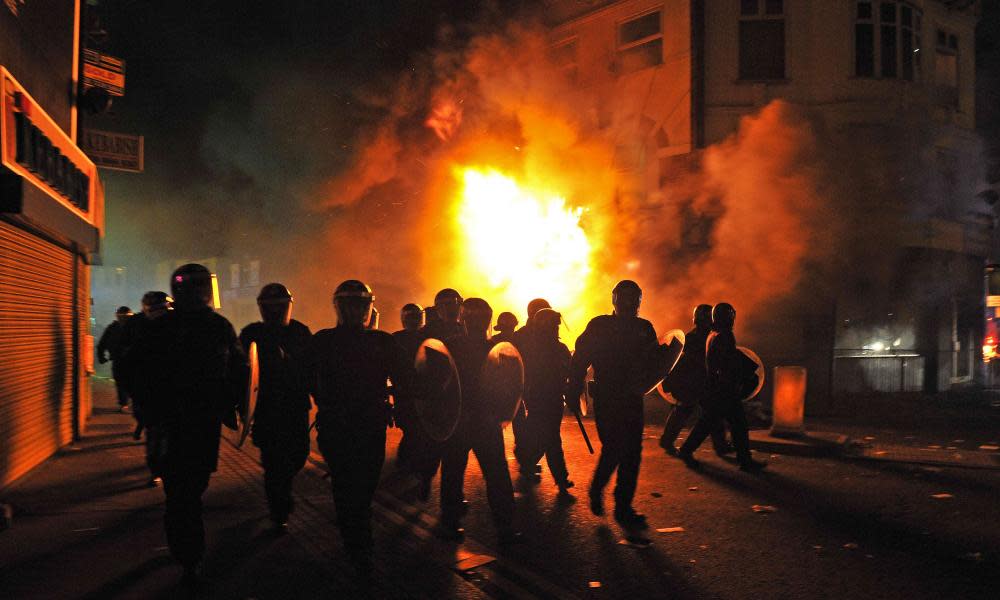Police would struggle to deal with repeat of 2011 riots, says senior officer

Police would face “real challenges” tackling a repeat of the 2011 riots following years of budget cuts, one of Britain’s most senior officers has warned.
A series of major incidents to hit the country in recent weeks had laid bare the strains faced by forces under financial pressure, Dave Thompson, chief constable of West Midlands police said.
Writing in a blog for the National Police Chiefs’ Council (NPCC), he called on the government to boost investment, protect frontline policing and cut bureaucracy.
Thompson said: “The funding forces receive needs to be stabilised with real-terms protection for policing as a whole.
“Last year we saw the prison service snap under pressure with riots in Birmingham prison. We cannot afford this to happen to policing but the strain is showing from recent weeks and we’d have real challenges in dealing with something like the 2011 riots again.
“When things break, recovery is never quick, and in policing it takes considerable time to recruit and train staff.”
Riots sparked by the police shooting of Mark Duggan in Tottenham, north London, saw civil unrest sweep across the country in August 2011.
“Policing is not raising a white flag saying we can’t cope but the last few weeks and general resilience is starting to show some red lights,” Thompson told BBC Radio 4’s Today programme.
“We’re not scaremongering,” he said. “We need to have a conversation and a partnership with government that enables us to look forward to deal with the threats we face and there are choices in there for government that we will give them, this is not simply pushing over and asking for a blank cheque.”
His comments came after the home secretary, Amber Rudd, acknowledged for the first time that stretched police resources in the face of four terror attacks in three months meant counter-terrorism operations could not continue at an emergency level indefinitely.
Rudd told MPs that police resources had “been pulled very tightly” as they tried to tackle “a new phase” in the terror threat, but has ordered a rapid review of the handling of the recent attacks “before rushing in with additional money”.
The recent terrorist attacks in London and Manchester saw police resources required on a vast scale, with the latter atrocity leading to a nationwide deployment of officers.
Investment in counter-terrorism policing has increased, along with partial increases for firearms officers.
However, Thompson warned that much of the response to major incidents came from core police budgets.
“The firearms commanders, casualty bureau, custody staff, body recovery teams and uniformed officers patrolling crowded spaces that are so central to preventing and responding to a terror attack are paid for by core police funding,” he said.
“Over two-thirds of the policing effort after the Westminster attack was not counter-terrorism funded. This figure will be much higher following the Manchester attack.”
Once inflation and cost pressures were accounted for there would be less money every year for forces on top of real-terms cuts of 18% since 2010, Thompson warned.
The squeeze had left police and crime commissioners needing to increase local taxation “to the maximum” while many forces were using “considerable reserves to maintain current staff numbers”, he said.

 Yahoo News
Yahoo News 